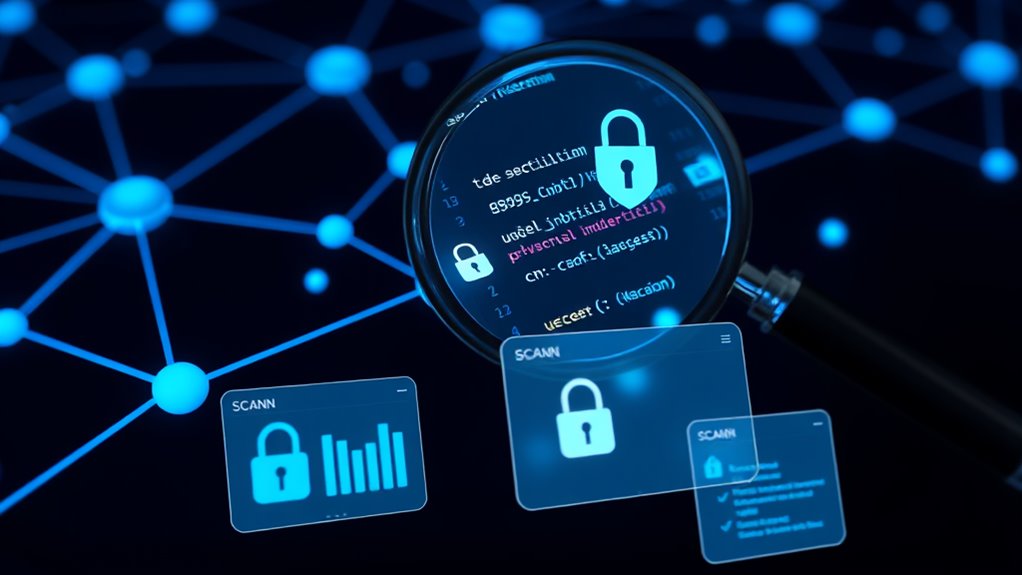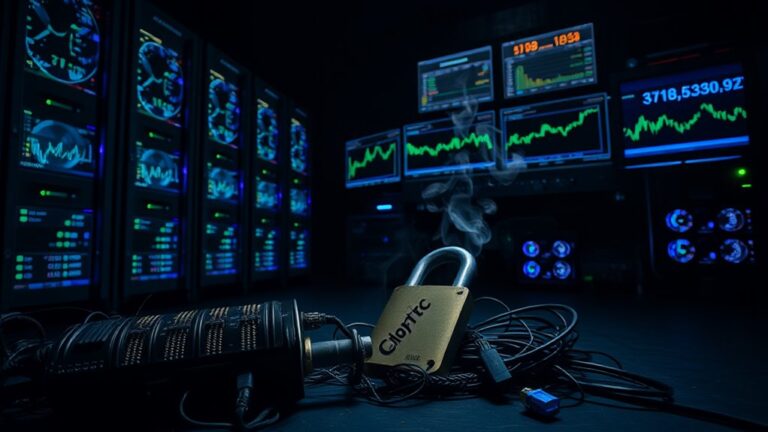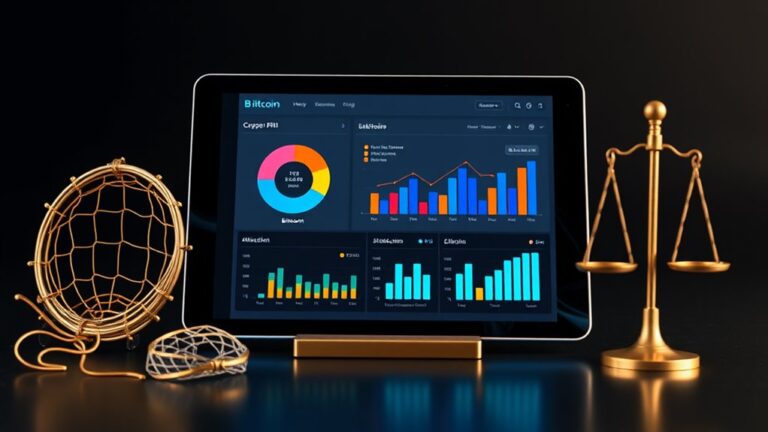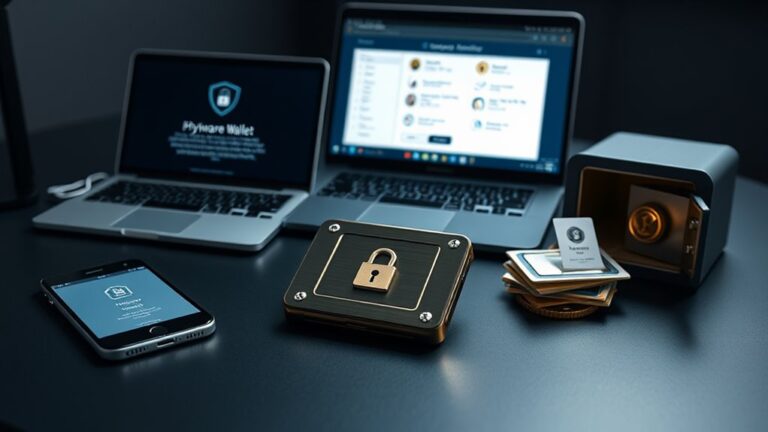Conducting a Blockchain Security Audit
Note: This post may contain affiliate links, and we may earn a commission (with No additional cost for you) if you purchase via our link. See our disclosure for more info. The gold and crypto world is constantly changing. This is not financial, investment, legal, or professional advice. So, please verify the information on the gold and cryptocurrency provider’s websites.
Conducting a blockchain security audit isn't just a good idea; it's essential. With financial losses from security incidents rocketing, ignoring vulnerabilities could mean trouble. Audits spot weaknesses in code and infrastructure before they turn into expensive catastrophes. They assess everything—protocols, smart contracts, compliance. But fair warning: it's complex and resource-heavy. Yet, skimping here might hurt far more down the road. There's plenty more to uncover about the audit process and its hidden treasures.
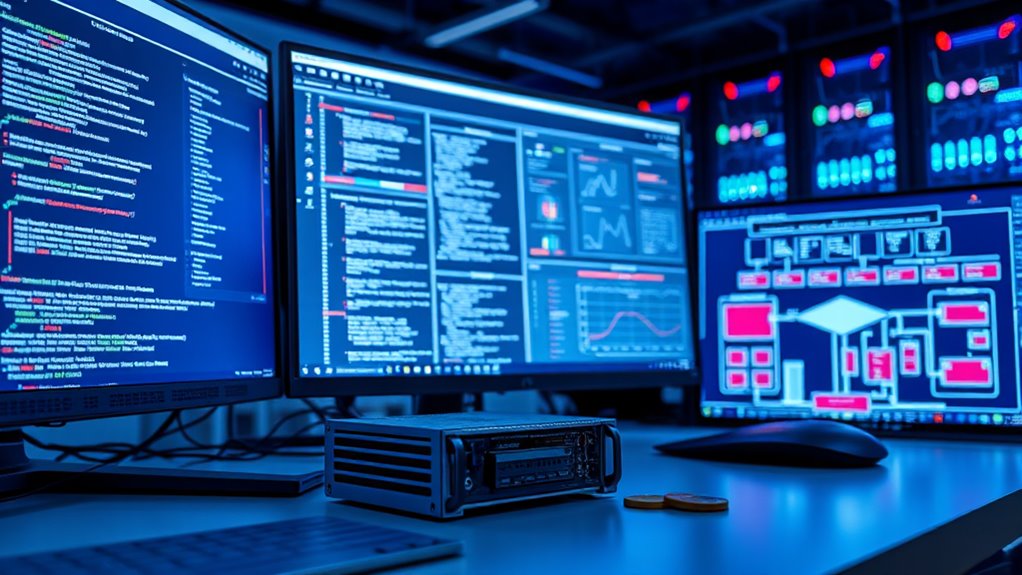
In the wild world of blockchain, security audits are the unsung heroes—or the necessary evils, depending on who you ask. They're the gatekeepers, the watchdogs that sniff out vulnerabilities in code, infrastructure, and smart contracts. And let's be real: without them, financial losses could spiral into a disaster. In 2023 alone, security incidents skyrocketed by 53%, racking up a staggering $2.486 billion in losses. Ouch.
Why bother with audits? It's simple. The immutable nature of blockchain means that once something is deployed, fixing it is like trying to untangle a hairball. It's messy and expensive. A thorough audit before launch can save a project from a world of hurt later on. Plus, compliance with regulations like GDPR and FATF is crucial. Nobody wants a legal headache, right?
Audits come in various flavors. You've got protocol audits, which dive deep into the core architecture and consensus mechanisms. Then there are smart contract audits, scrutinizing code logic for pesky bugs. Financial audits check transaction accuracy, while compliance audits guarantee everything is on the up-and-up with industry standards. Security audits? They assess encryption and defenses against external attacks. All essential, all necessary. Blockchain audits are crucial for identifying potential errors or vulnerabilities that can lead to severe consequences. Additionally, conducting audits builds trust with users and establishes organizational credibility, while proactive threat management enhances the overall security posture.
The audit process isn't a walk in the park. It begins with planning—defining scope and objectives. Next, auditors gather data, analyze vulnerabilities, and then report their findings. It's a cycle of discovery and remediation, where fixes are verified post-audit.
Tools? Oh, there are plenty. Automated scanning tools like Mythril and Truffle help speed things up. But let's not forget good ol' manual reviews; sometimes, an expert's eye is irreplaceable. Proper private key security remains particularly critical, as compromised keys have led to some of the most devastating cryptocurrency thefts in history.
In the end, the benefits are clear. Audits mitigate risk, guarantee compliance, enhance credibility, and save costs in the long run. But the challenges? They're real. Complexity, evolving threats, and the sheer resource intensity of it all can be intimidating. Yet, in a world where digital trust hangs by a thread, audits remain essential.
Frequently Asked Questions
What Qualifications Should an Auditor Have for Blockchain Security?
To be a blockchain security auditor, one needs serious chops.
We're talking deep knowledge of blockchain architecture, smart contracts, and cryptography. Programming skills? Absolutely essential. They can't just wing it; they need expertise in tools like Truffle Suite.
Also, understanding compliance regulations is a must. It's not just about tech skills, folks.
Experience in risk assessment and threat modeling? Yeah, that's pretty vital too. Otherwise, they might as well be flipping burgers.
How Often Should Blockchain Security Audits Be Conducted?
How often should these audits happen? Well, high-risk projects? Think quarterly.
Regular folks? Every 6 to 12 months is a good rule.
But hey, if there's a major update or a breach, time to scramble and reassess. It's like a routine check-up—only more urgent and with fewer waiting rooms.
Compliance cycles? Yeah, they matter too. Stay on top of those, or risk being left in the dust.
Keep it fresh, keep it safe.
What Tools Are Commonly Used in Blockchain Security Audits?
Blockchain security audits rely on a variety of tools.
Static analysis? Think Slither, Mythril, and Securify.
Dynamic analysis? Manticore and MadMax take the spotlight.
Fuzzing tools like sFuzz and Echidna? Essential for finding bugs.
Then, there are specialized tools: Remix IDE Plugin for debugging, MythX for security verification, and Surya for code visualization.
Each tool has its quirks, but they all aim for one goal: keeping blockchain projects safe from nasty surprises.
What Are the Costs Associated With a Blockchain Security Audit?
Costs for a blockchain security audit? Well, brace yourself.
Basic ERC-20 tokens might set you back $10,000 to $20,000.
Medium dApps, like NFT marketplaces? Think $20,000 to $50,000.
But wait, if you've got an advanced protocol, you're looking at $75,000 to $150,000+.
Ethereum audits? Pricier than Algorand because, surprise, Solidity is a pain.
And remember, the complexity of your code is going to bite you in the wallet. Ouch!
Can Audits Guarantee Complete Security for Blockchain Systems?
Nope, audits can't guarantee complete security for blockchain systems.
That's the harsh truth. They're like a safety net with holes. Sure, they catch some vulnerabilities, but others slip right through.
Plus, the tech evolves. New threats pop up faster than you can say “crypto.” Audits focus on what's there, not what could sneak in.

